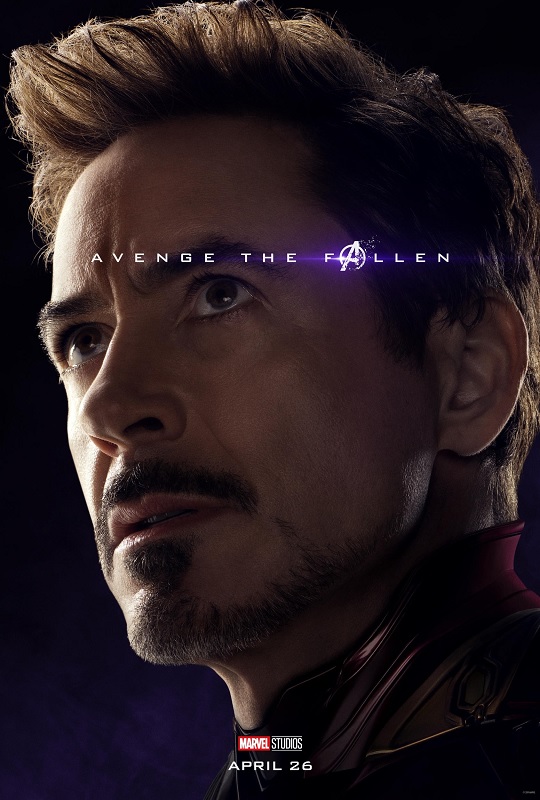
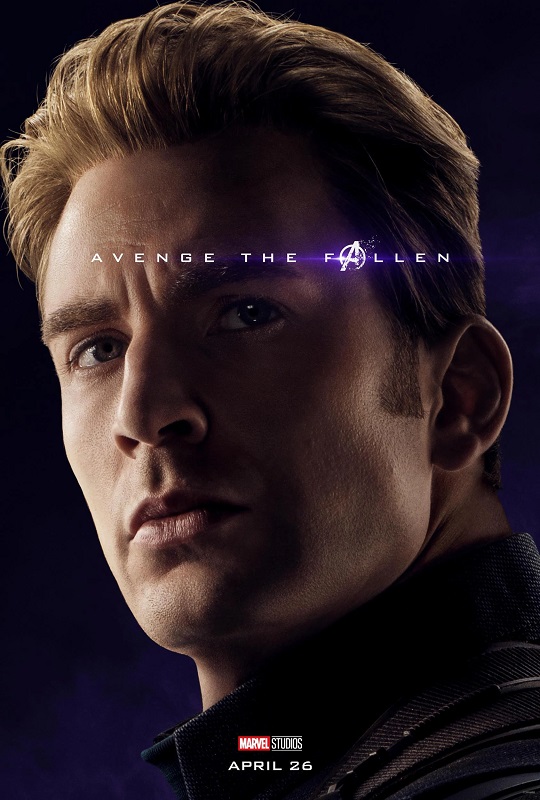
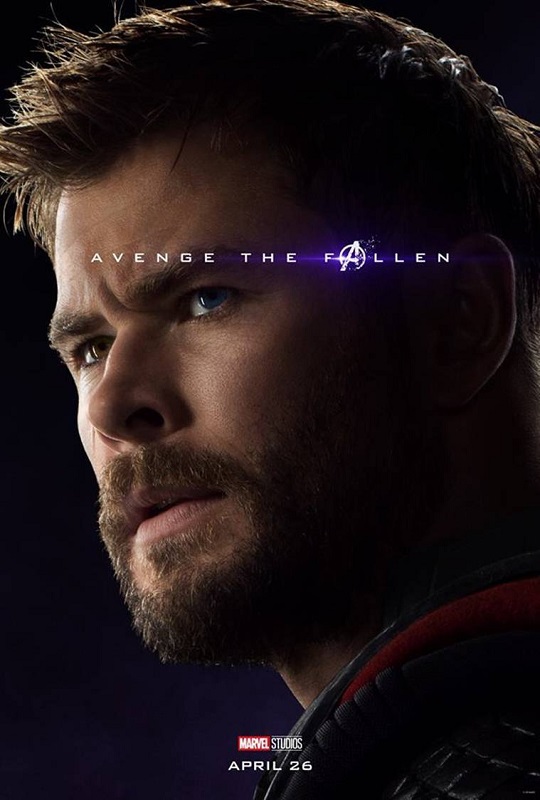
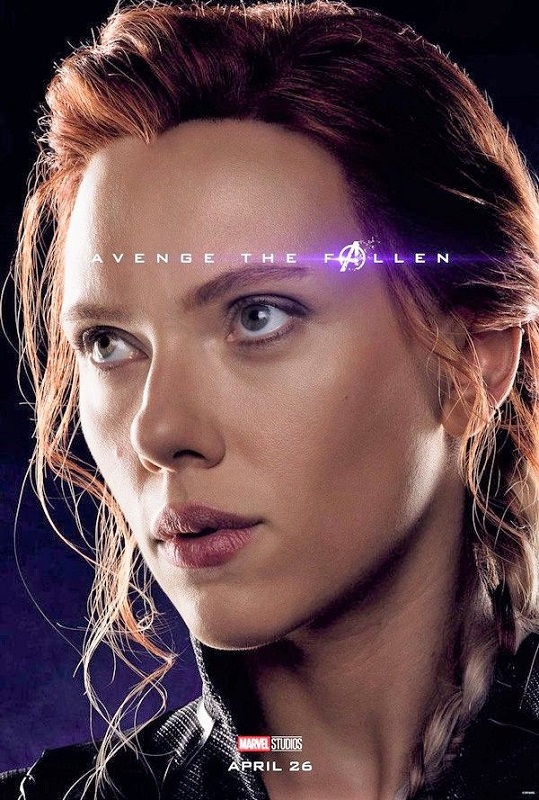
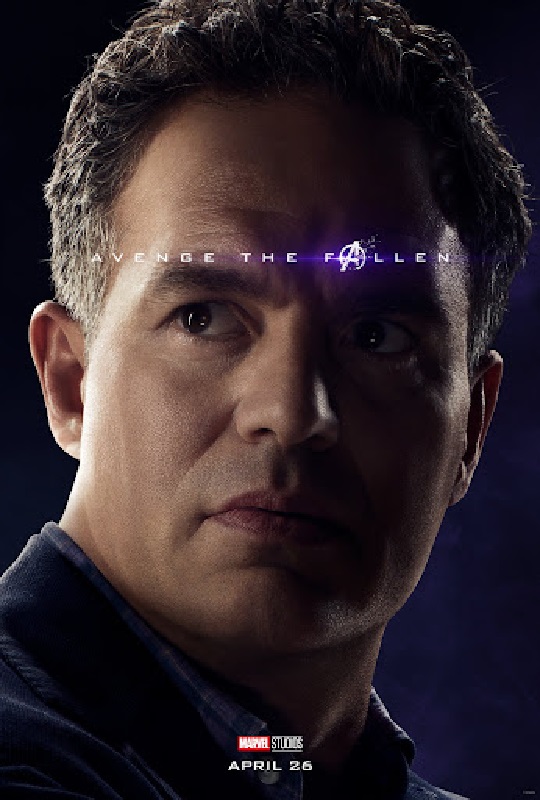
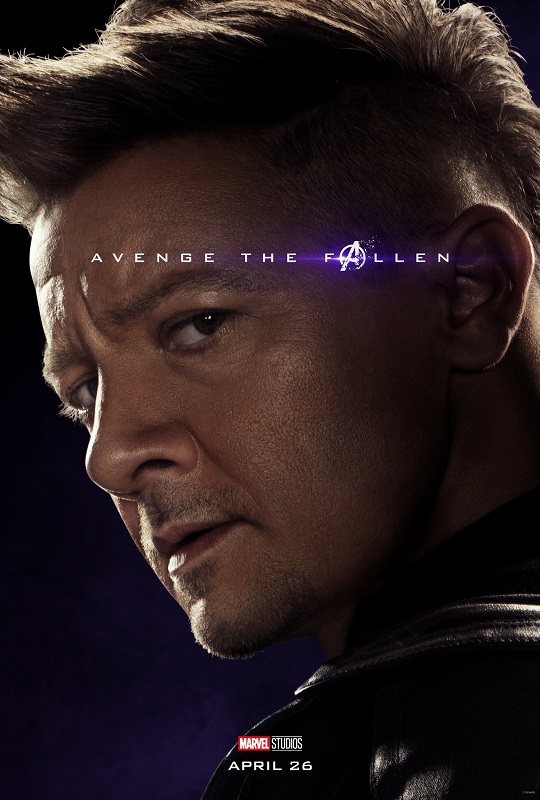
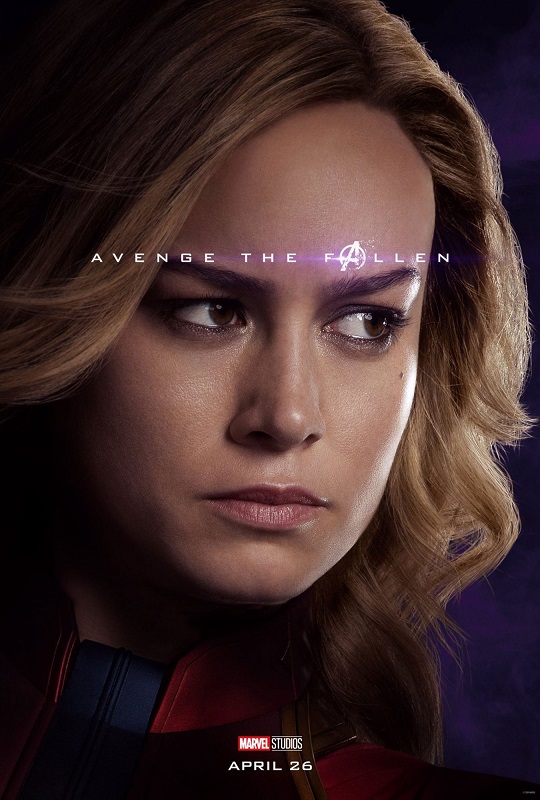
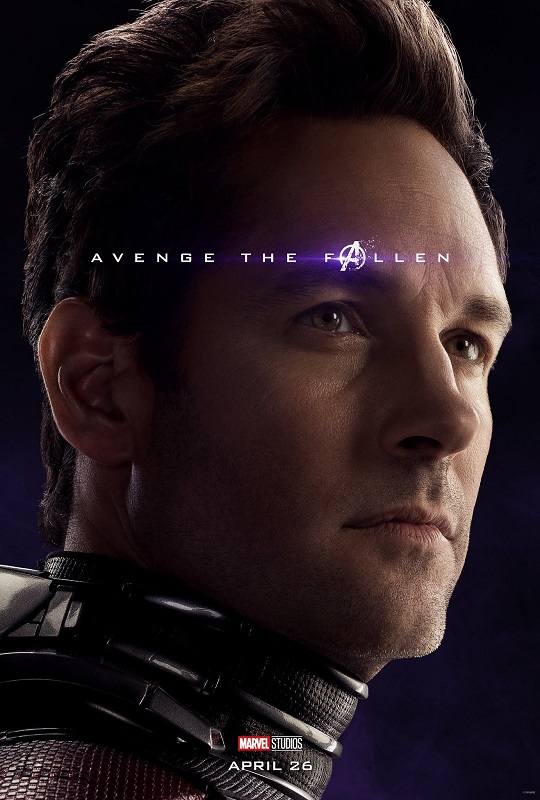
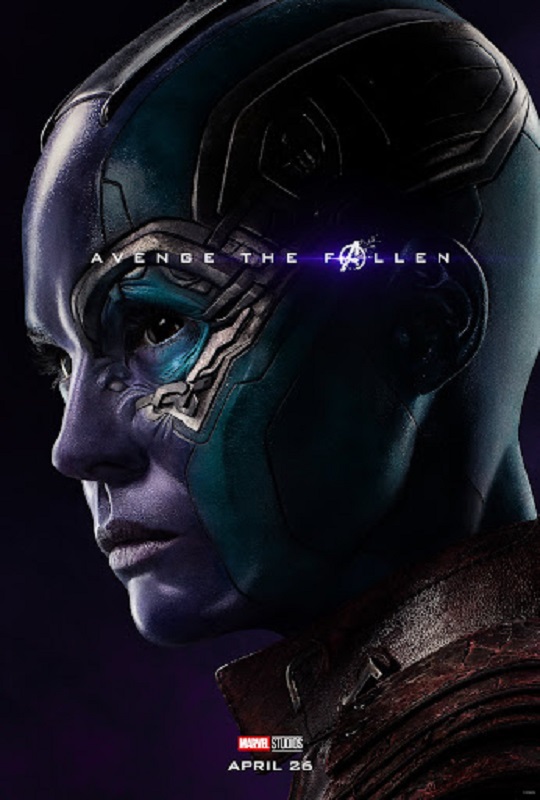
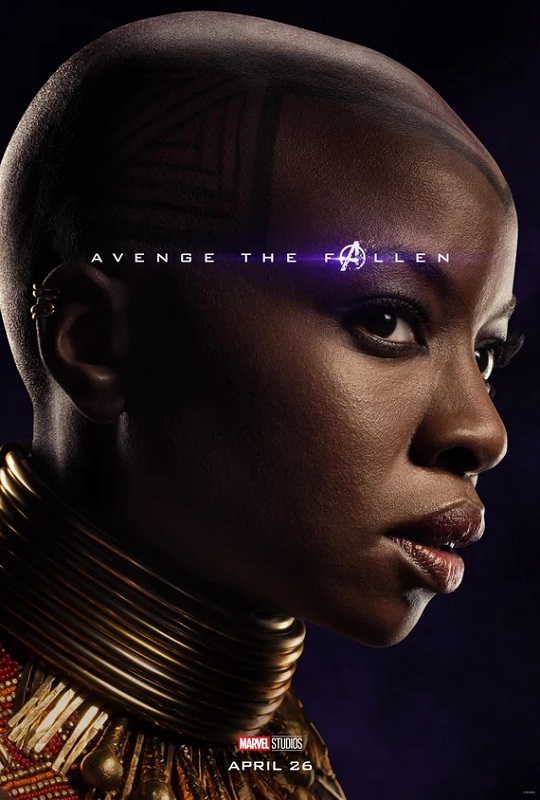
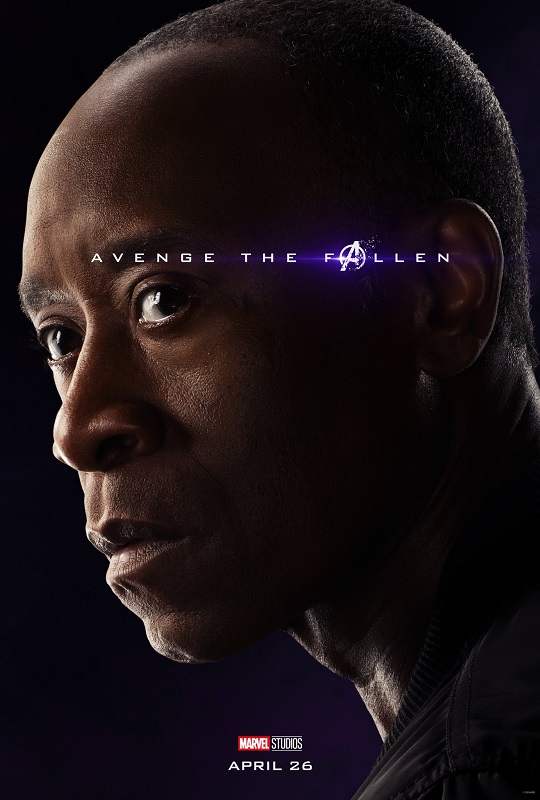
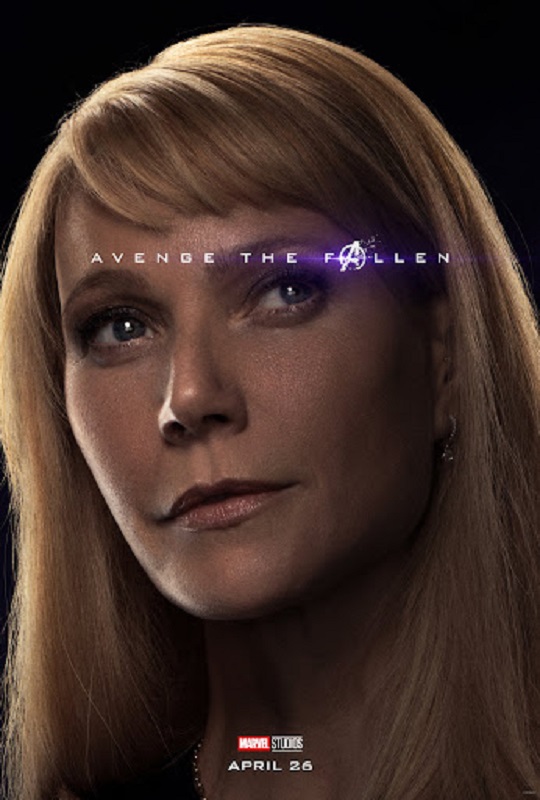

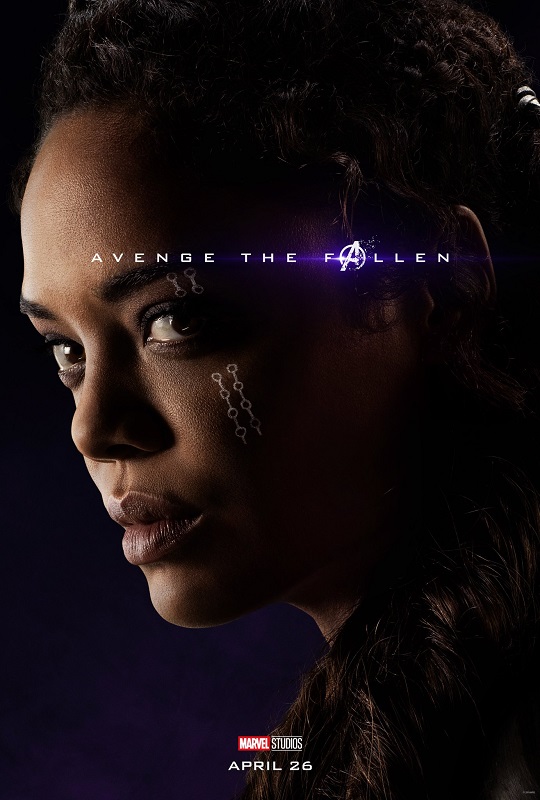
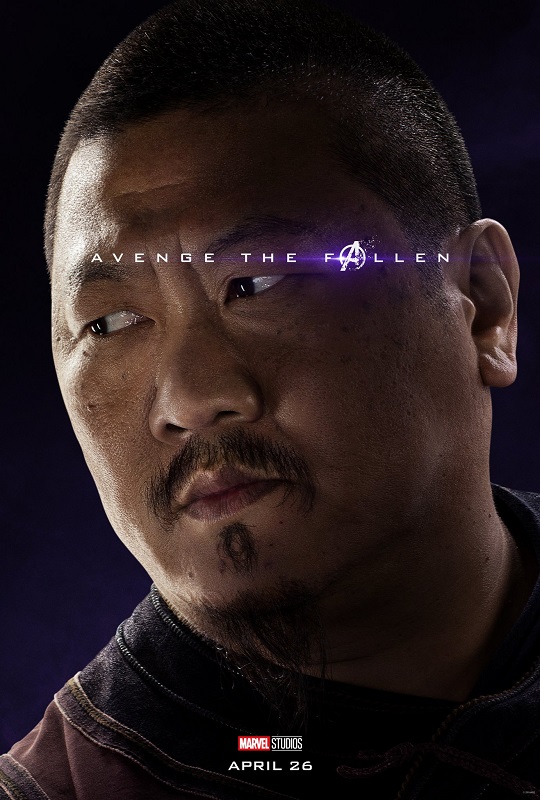
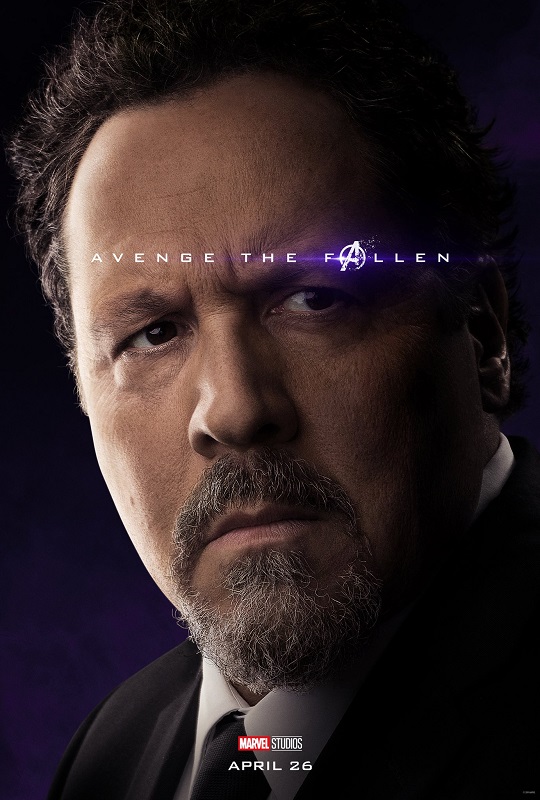
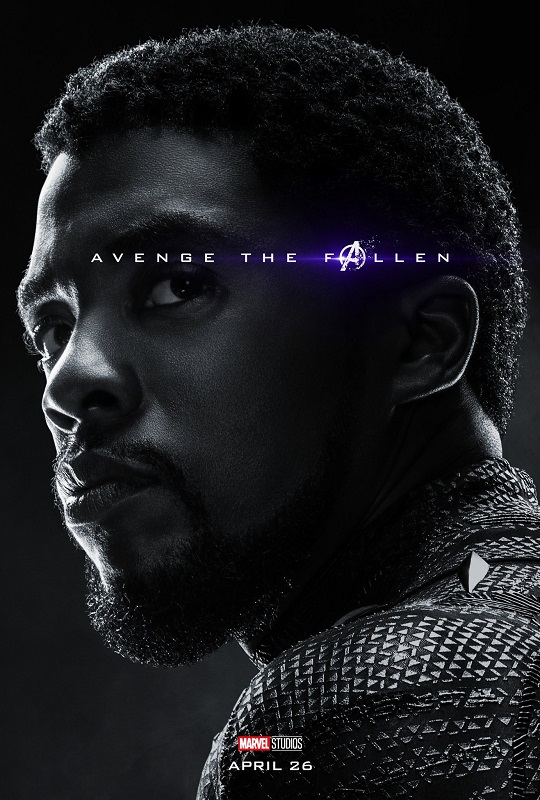
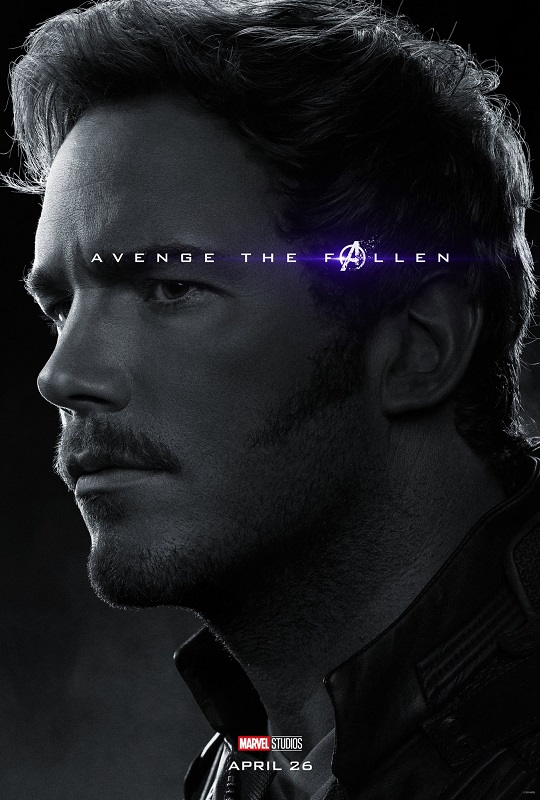
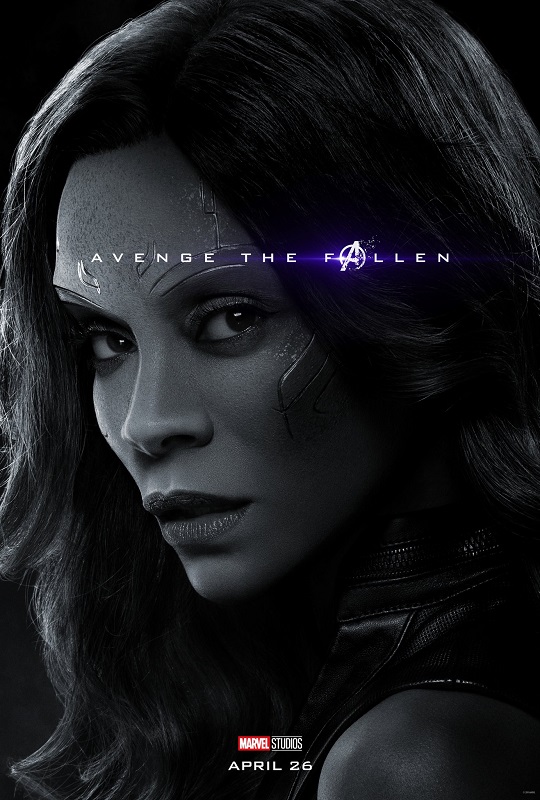
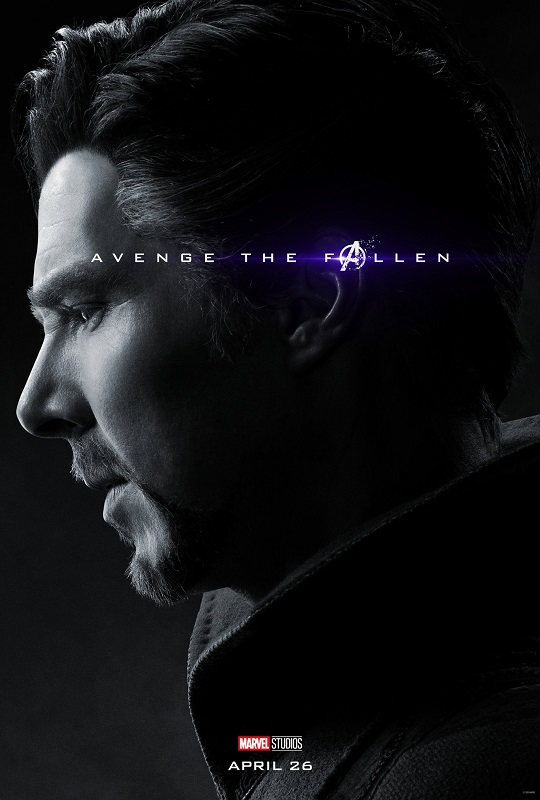
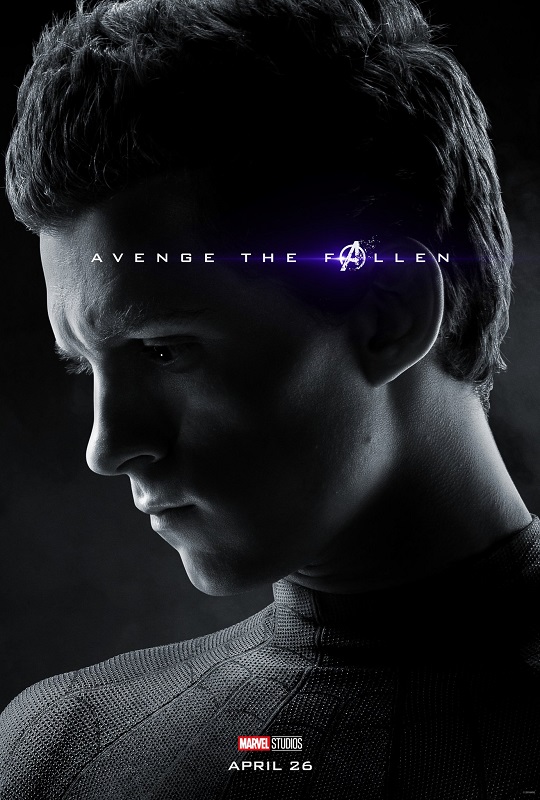
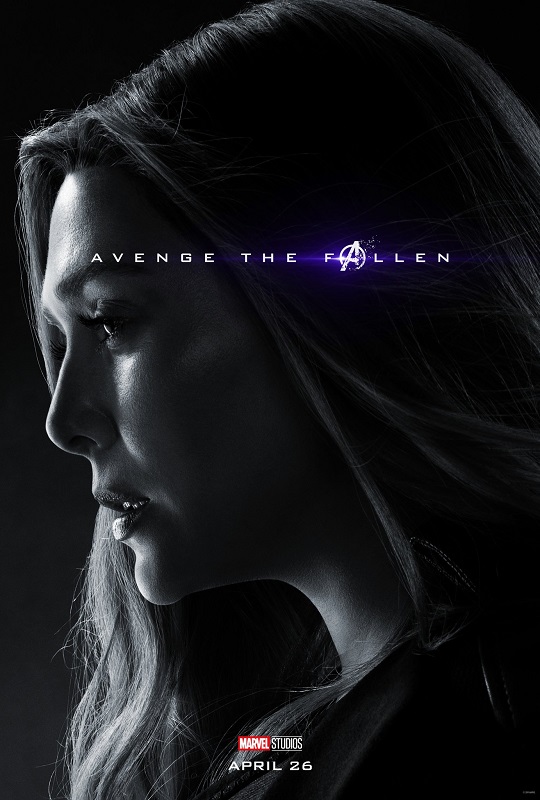
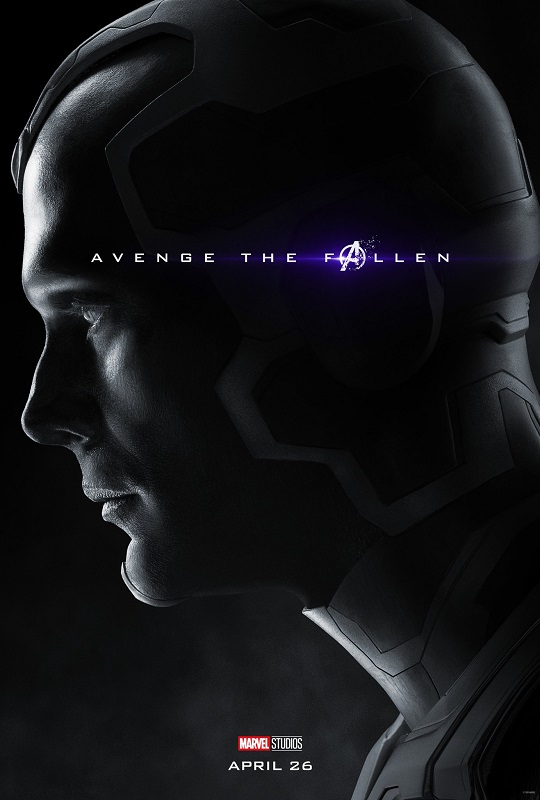
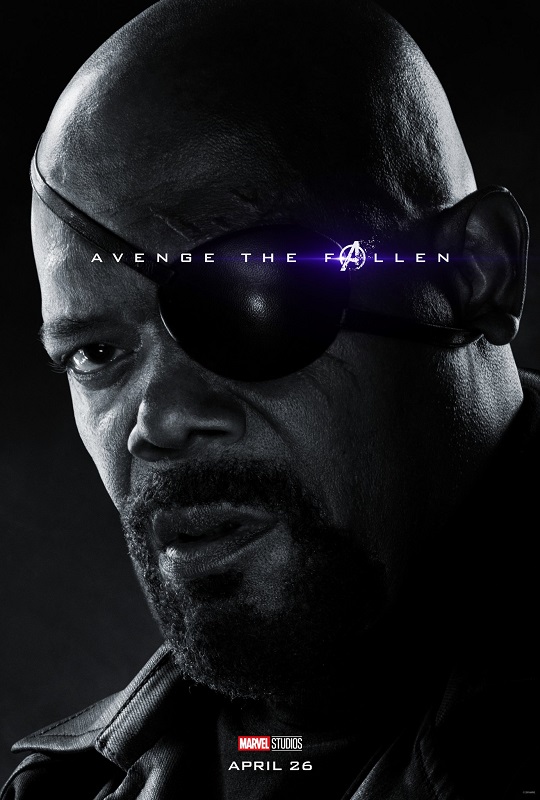
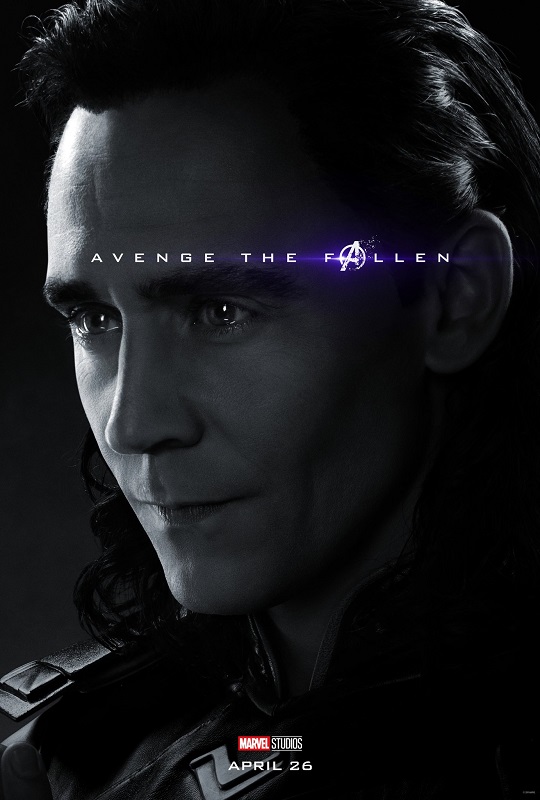
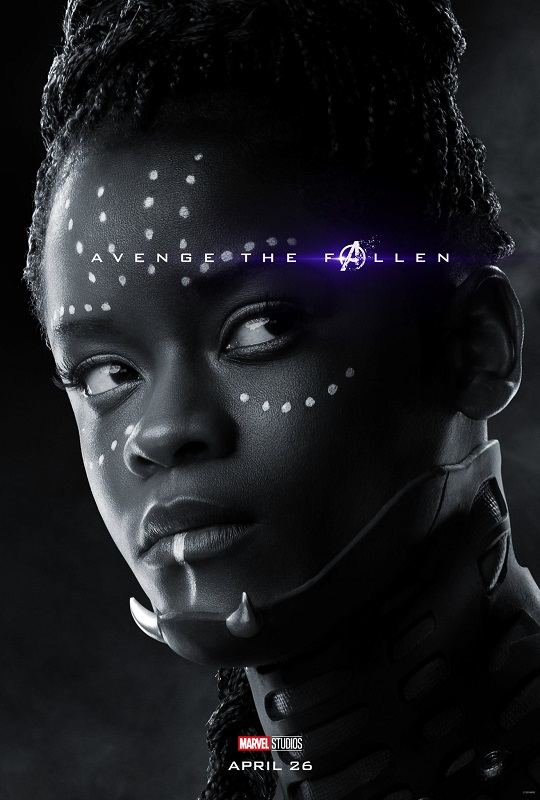
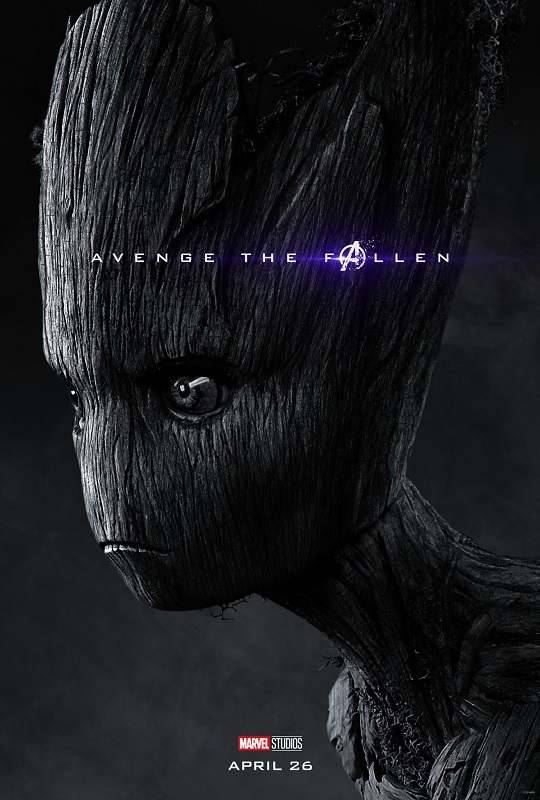
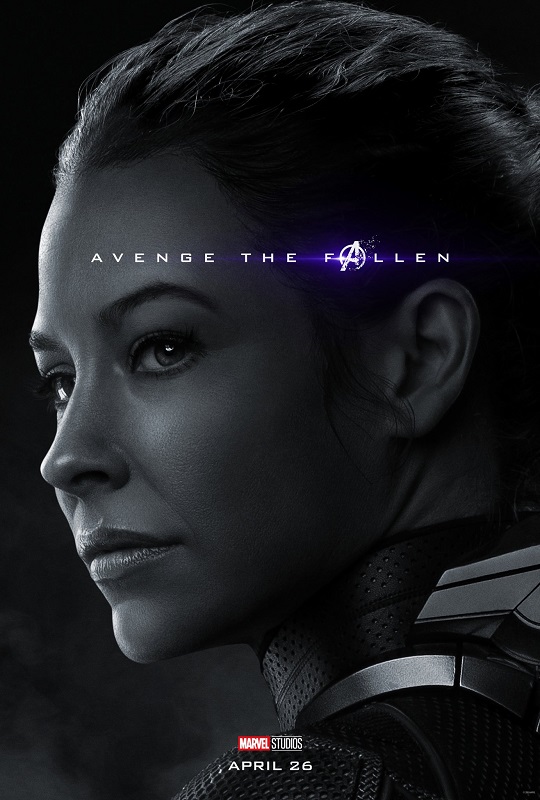
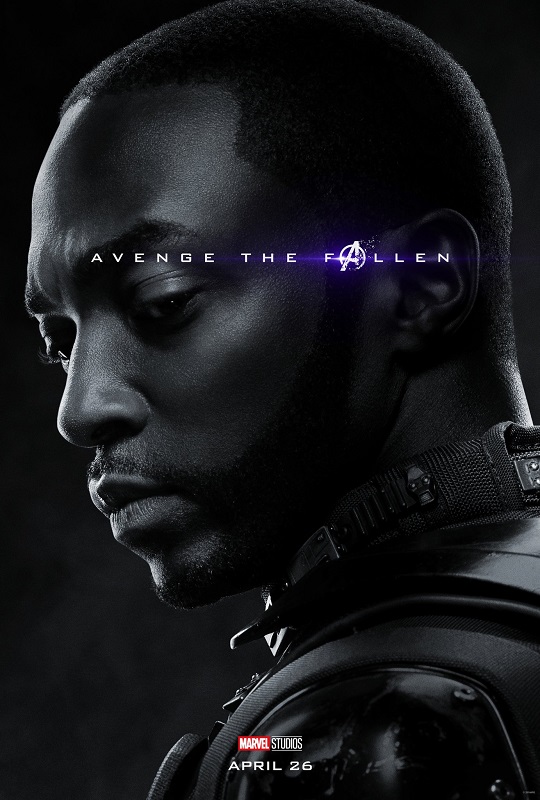
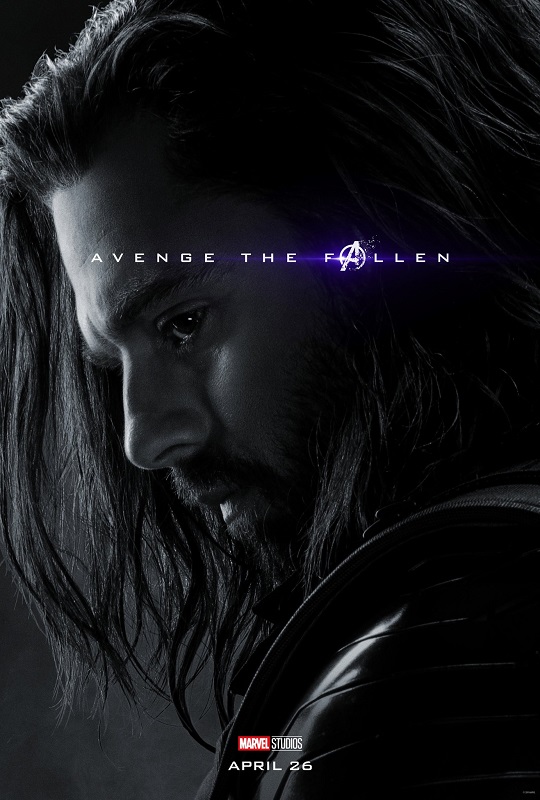
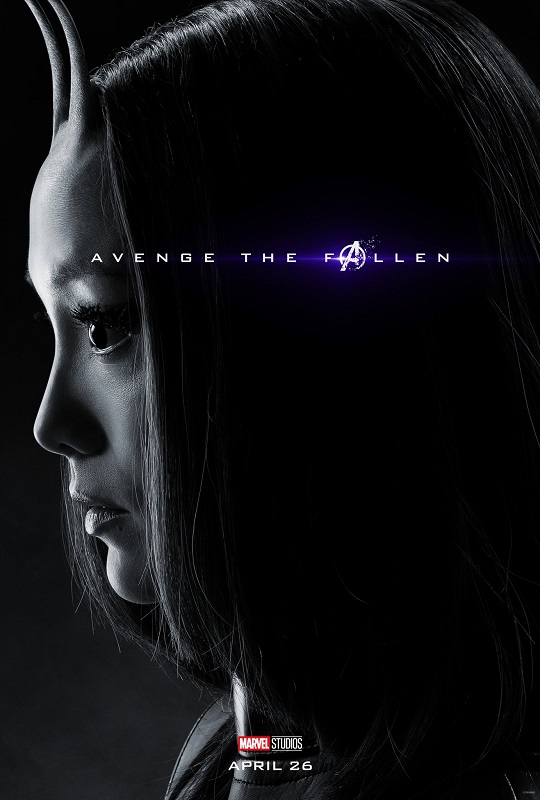
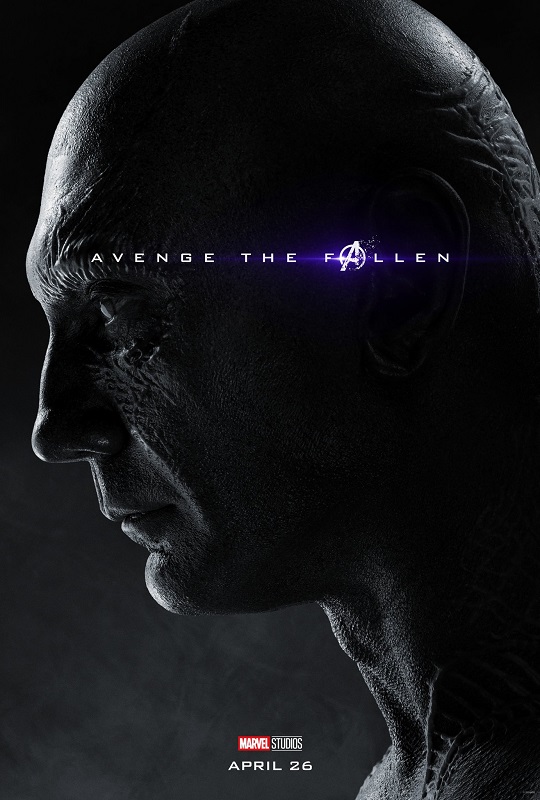
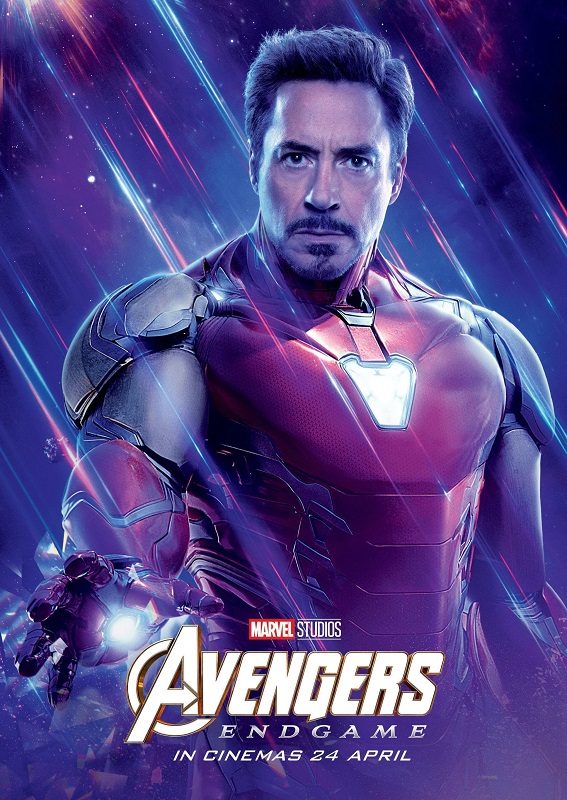
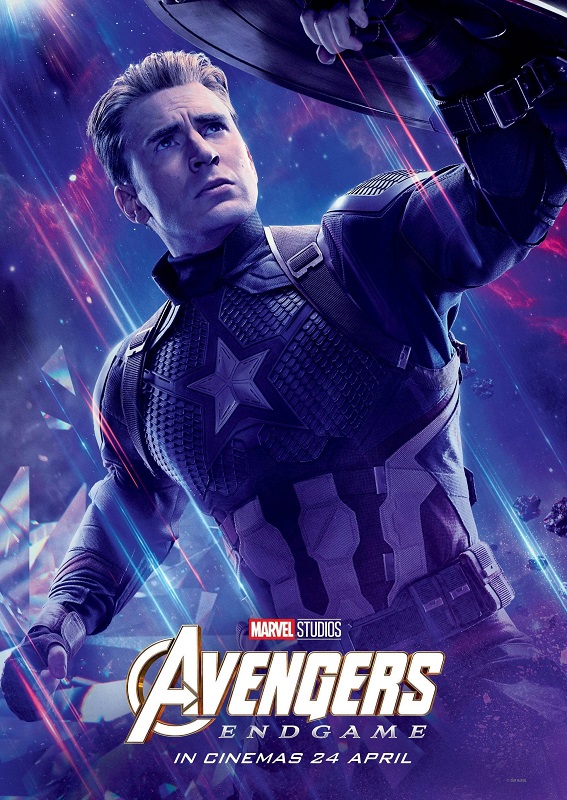
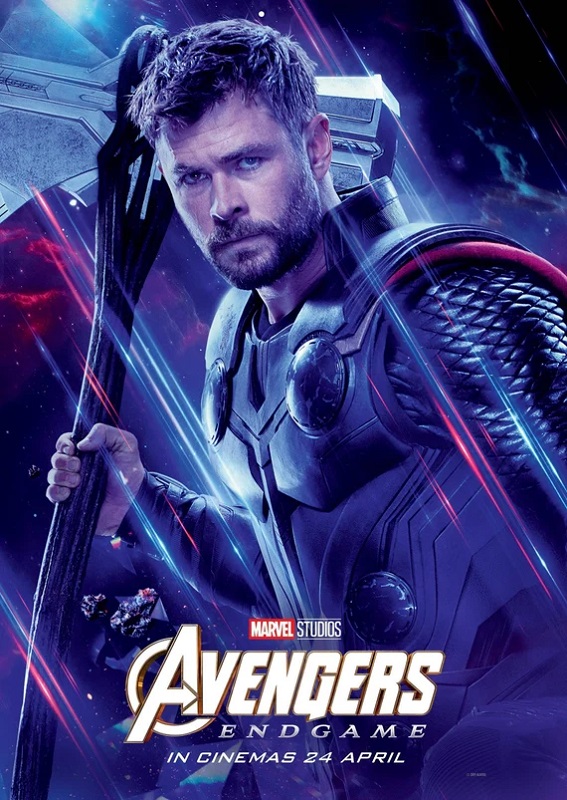

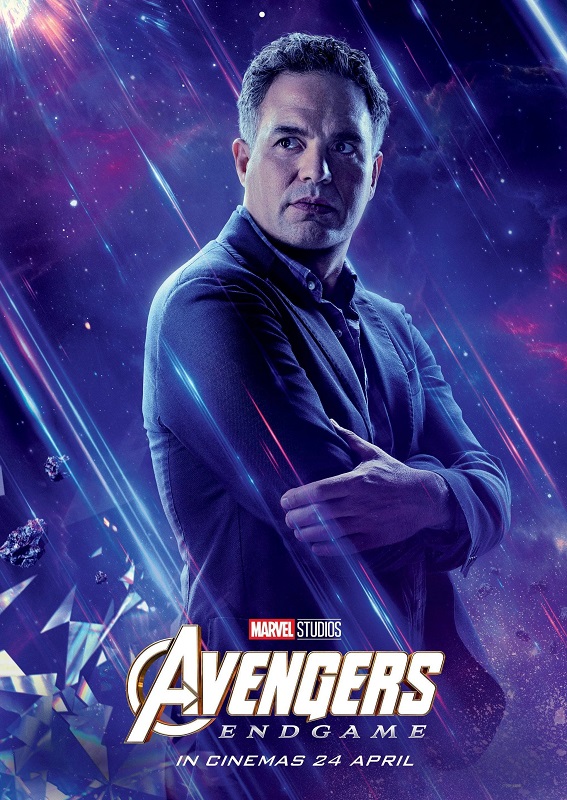
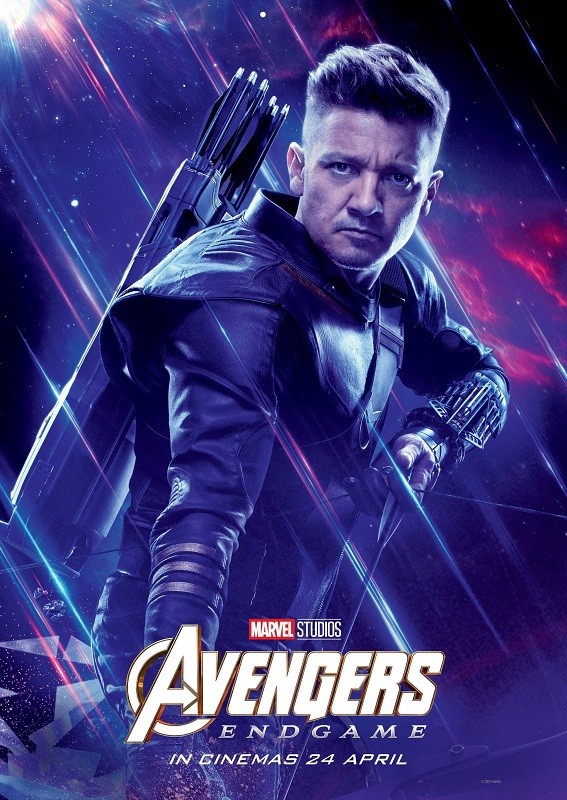

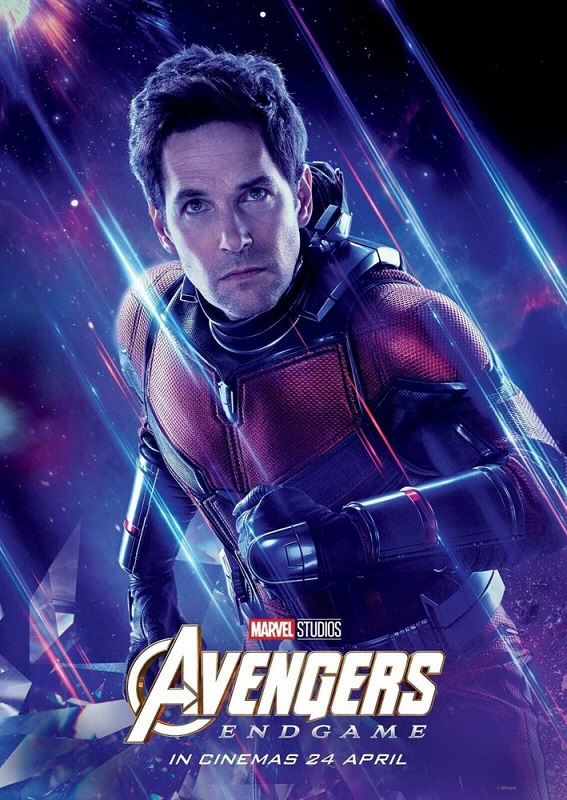
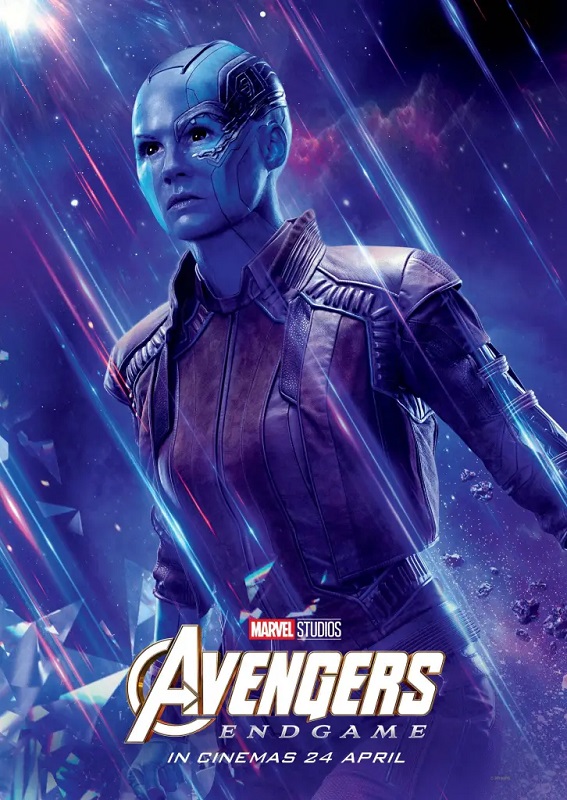
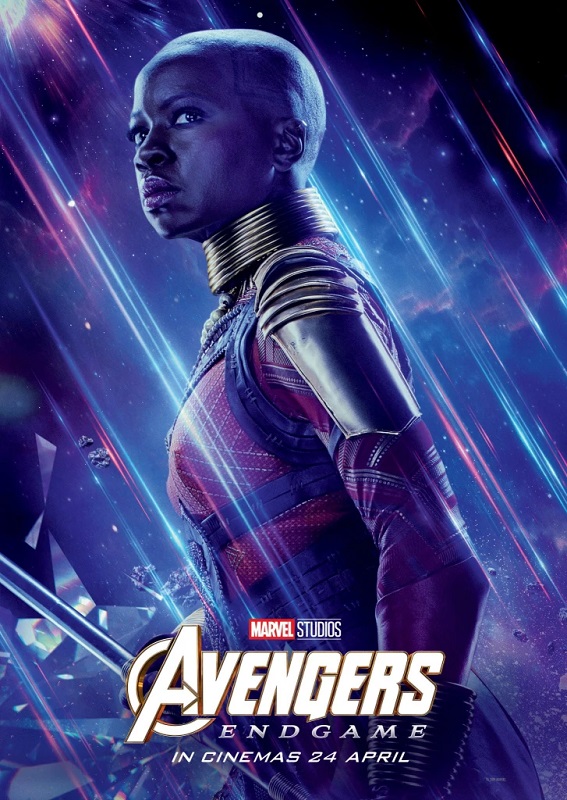
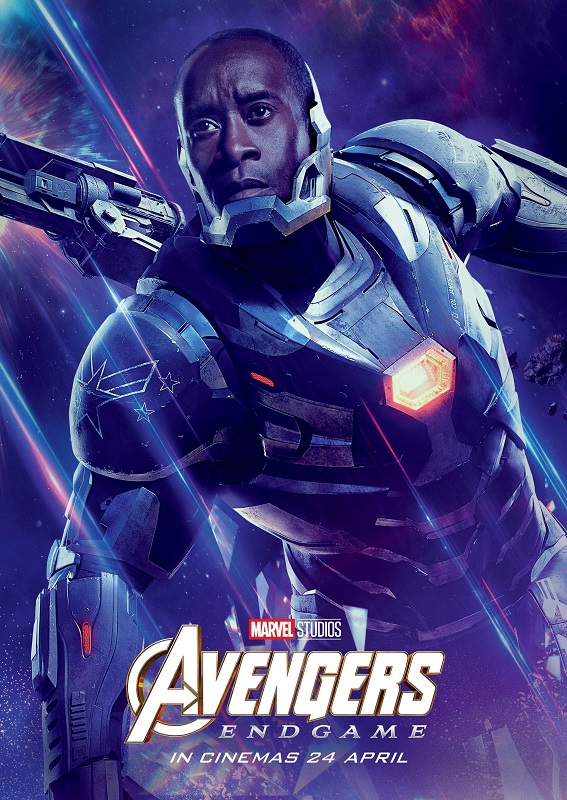

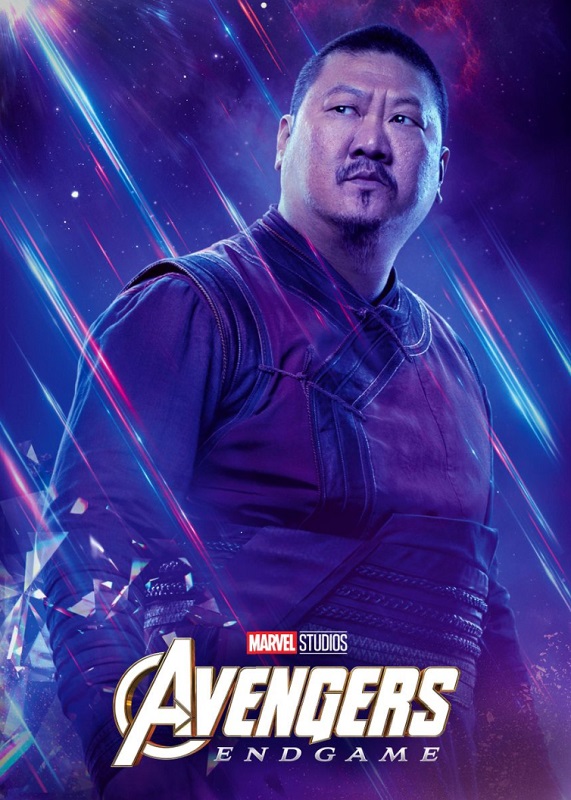

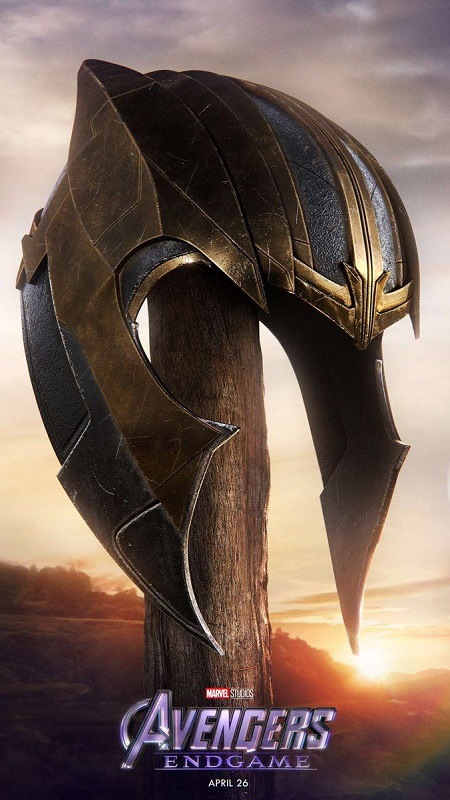














































































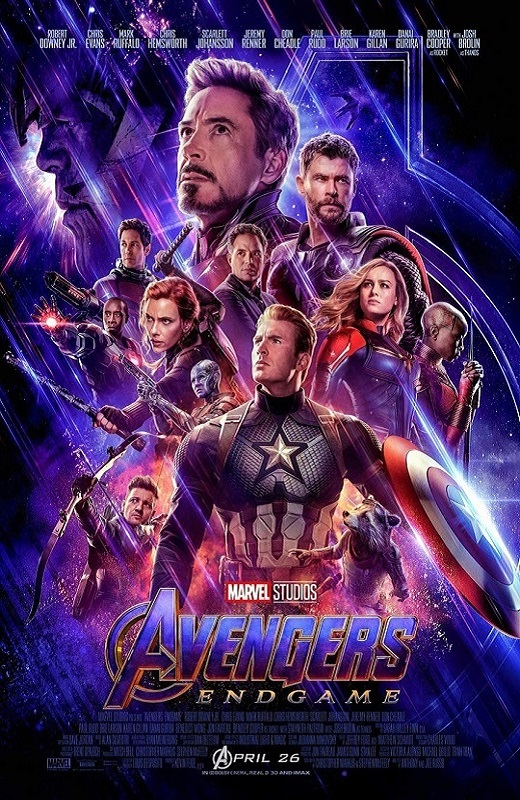
22 – Avengers: Endgame
Well, here we are at the big one. This is the climax of the Infinity Saga within the MCU franchise. Here is where we resolve the Snap, which happened in Infinity War, and add in the final player in the action/Drama, Captain Marvel. This was not only one of the biggest films in the whole Marvel tapestry, it was one of the biggest earning films of all time – ever. To quote Wikipedia, “It grossed $2.799 billion worldwide, surpassing Infinity War’s entire theatrical run in eleven days and setting a number of box-office records; it was the highest-grossing film of all time from July 2019 to March 2021”
It was incredible and absolutely lived up to all the hype. It brought in every hero from the MCU franchise. Of course the big three were there, Iron Man, Captain America, and Thor, but we also got back The Guardians of the Galaxy, The Winter Soldier, Falcon, Spider-Man, Black Panther, Doctor Strange, The Hulk, Black Widow, Hawkeye, War Machine, Ant-Man, and of cour4se, Captain Marvel. But it also brought along all the surviving peripheral heroes from all the different franchises like Valkyrie, Okoye, Shuri, Wanda Maximoff, The Wasp, The Ancient One, and even Loki. Plus a great little scene with Thor’s mother, played by Renee Ruso.
But the real highlight of the film was its awesome main villain, Thanos. Josh Brolin took that role and made his one of the greatest bad-guys of all time. He was powerful, smart, cruel, and best of all, supremely determined to achieve his goals, and willing to crush anyone or anything that stood in his way. Brolin’s performance was spellbinding, even though it was all done with facial capture technology, motion capture software, and CGI. The visual effects throughout the entire film were amazingly photo-realistic, and Thanos was no exception.
But it wasn’t just the spot-on visuals that was impressive. The story was fantastic! The action was thrilling! And the Drama was enough to bring me to the edge of tears every time I see it. Spoiler Alert. The moment when Thor’s hammer flies back and caught by Captain America is enough to me raise my fists in the air in excitement. And the death and funeral of Tony Stark is simply heartbreaking. Yes, the self-sacrificial death of Black Widow was also pretty devastating, but it just didn’t have the same impact as the film’s climax. The entire final battle scene was just mesmerizing. It gave every character their moment to shine, reminding us of why we like each of them. I can’t help but watch that final battle sequence on the edge of my seat, every time.
But I think the biggest shout-out has to go to the film’s directors, the Russo Brothers, Anthony and Joe. They knocked this out of the park. I can’t even imagine what is involved in making a movie of this magnitude, but they pulled it off beautifully, controlling and coordinating every aspect of the process from beginning to end. They didn’t direct all the movies that came before Endgame, but they brought the varied actors all together and were respectful to where every one of them came from and what came before. They made Endgame work as part of the fabric, the overall tapestry, that is the MCU.
This was the perfect ending to the Infinity Saga. It is the twenty-second film in the franchise and it is the culmination of all the movies that came before it. It summed them all up and gave them a satisfying ending. But as we all know this wasn’t the end of the franchise. It was just the end of the Infinity Saga. And in true comic book fashion, the story continued. This was not the end, but it was a phenomenal cap the Infinity Saga. This will always be one of my favorites! The surviving heroes continue to show up in future MCU movies. And the great action films just keep coming and coming. And even the films which are not as well-received, still enthrall me. I am a true fan and I hope they keep going. I love them three thousand.
Top 10 Favorite Parts



1943 – Lucile Watson
Watch on the Rhine
Luclie Watson did a fantastic job in the role of Fanny Farrelly. The first half of the movie, which was much more light-hearted than the second half, gave Watson the chance to show a bit of a comedic side. The second half was deeper and more dramatic. Fanny became a dramatic character and Watson was just as grave and serious as the rest of them, delivering her dialogue with gravitas and poise, making me like her character even more.
The character of Fanny was almost crabby, but was absolutely likeable, certainly self-centered, almost to the point of narcissism, but still fun to be around, and even a little clueless or oblivious to reality or even logical thinking. But she was also a caring and loving mother who adored her family. She played the kind of lady we’d all like to know. Watson played that aspect of Fanny perfectly, lending a care-free feel to the first half of the story. The way Watson played Fanny, she wouldn’t have been out of place in a screwball comedy. Incidentally, What I loved about her character here was that she totally reminded me of Hyacinth Bucket in that British comedy series Keeping Up Appearances, a wonderfully funny character played by Patricia Routledge. Watson was just as high-faluten’, uppity, and silly as that well-known character.
But the second half of the film turned much darker and focused on other characters. She almost didn’t need to be there during the whole drama surrounding her daughter’s anti-fascist husband, Kurt. And then in the last few minutes of the narrative, she became just as serious and conscious of the world around her, which included the wars that her daughter and her family were fighting. She even selflessly gave a great deal of money to help them in their cause. And I loved Watson in these scenes, too. In fact, brief as they were, I thought that those were the scenes where Watson really got a chance to shine. She knew that by letting her son-in-law, who had just murdered a man, go, there might be problems for the family, but she showed her metal and did the right thing without fear. I was a great moment for the character and the film. Watson gad a sense of dignity that was very appropriate.
I completely agree with her Best Supporting Actress nomination. She took a role that could have been fairly unmemorable, and made it memorable in a very good way. She easily held her own, playing opposite the popular Bette Davis, and the Best Actor Oscar winner Paul Lukas. But she was up against Katina Paxinou in For Whom the Bell Tolls and Gladys Cooper in The Song of Bernadette. Those would have been hard performances to beat.
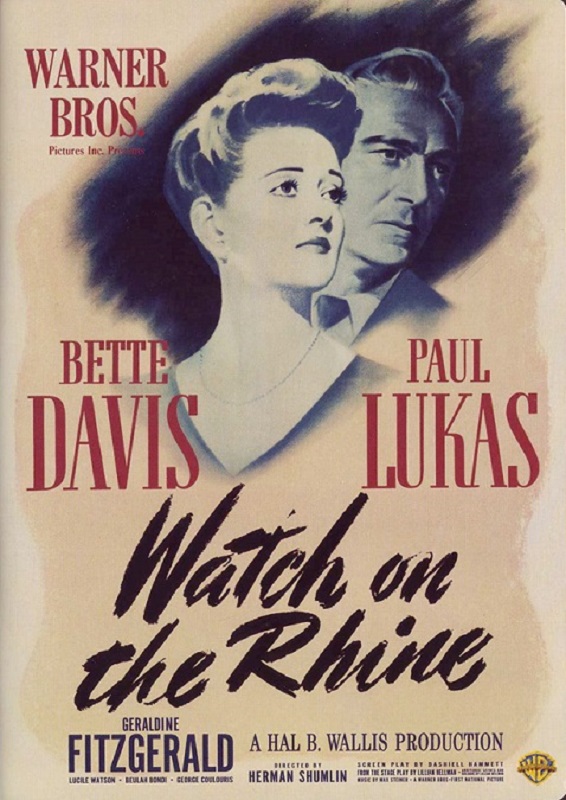
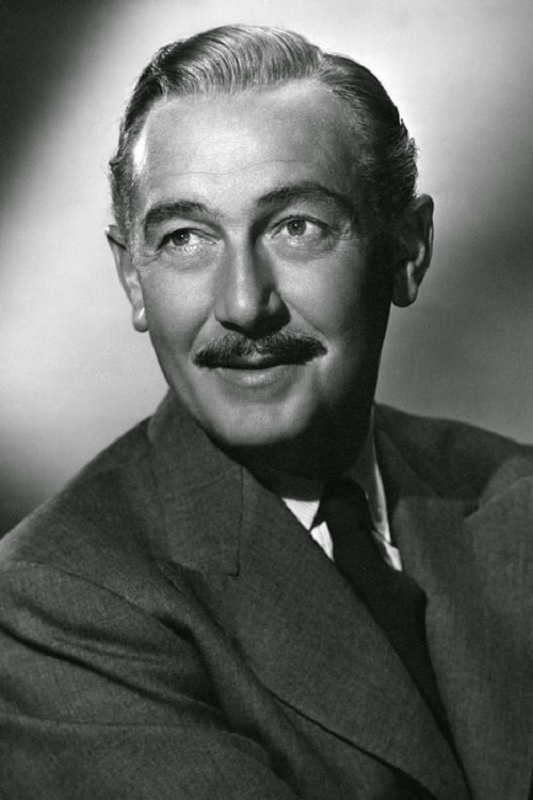

1943 – Paul Lukas
Watch on the Rhine
So Paul Lukas took home the Oscar for his performance in Watch on the Rhine. He also played the role on Broadway before the film. He was a Hungarian-born actor, but it was a little difficult to place his accent during the film. He was supposed to be a German who spoke several languages fluently, and I thought I could hear a bit of French when he delivered his dialogue. He played Kurt Muller, a man who made a profession out of being an anti-fasciest. And he was very passionate about his work, willing to fight for it, and willing to die for it, if necessary.
Lukas created a character, who, though he ends up murdering a man in order to save the lives of others, he is the hero of the movie. The film almost, but not quite, treated the murder as a justified act of patriotism. But he was more than just a freedom-fighter. He was also a loving father and husband, and he was clearly just as passionate about his family as he was about his work, which I liked.
So what made Lukas stand out among his competitors to win the Academy Award? Was it his looks? Well, he was certainly not a bad looking man, though he wasn’t a Hollywood heartthrob. Was it his attitude? He had a very stoic and matter-of-fact attitude, which is a common German trait. But no, I think it was his passion. Passion for his work, his family, and his convictions. It’s what made him a sympathetic character, despite the dark business to which he had to attend. Lukas did a great job of bringing that passion to the foreground, making it Kurt Muller’s defining characteristic.
But like any gentleman, he never lost control of that passion. He ruled it, and never let it rule him. One of his best scenes was one in which he is talking to his eldest son, trying to explain why he had to go back to Germany, even though his very survival was not guaranteed. He also had to explain to his son, who wanted to accompany him on his dangerous mission, why he had to go alone, but also acknowledging that the boy’s time would come when he would have to fight for his own cause, and that he was proud of him. I thought it was a wonderful performance, and the Academy voters seemed to agree.



1943 – Claude Rains
Casablanca
My goodness! Was there a movie in that era of old Hollywood that didn’t feature Claude Rains? He was in everything! And he was always good! And Casablanca is no exception. He did a fantastic job of playing a true supporting role. He was charming, charismatic, and handsome, easily keeping up with the film’s leading man, Humphrey Bogart. He looked the part and acted the hell out of it.
As Captain Renault of the French Police in the city of Casablanca, he was wonderful and memorable. He was as corrupt as he could be, and completely unapologetic about it, almost wore it as a badge of honor. He gladly served the Nazi officers in search of Victor Lazlo, even to the point of betraying his friend Rick to the bad guys in the film’s climax, and then ended up betraying them when the opportunity presented itself. He created such a despicable, and yet likeable character.
I loved how Rains completely understood the character, how he was happily subservient to the Nazi occupiers, took bribes and money from Rick’s gambling tables in fixed games, and having all the alcohol he wanted while never paying for any of it. But strangely enough, he also seemed to be good at his job, catching the murderous criminal, Signor Ugarte to show off for Major Strasser of the Third Reich. As an actor, Rains had the confidence and charisma to show that Renault was intelligent and absolutely amoral in his dealings with friends and enemies alike.
The scene in which Rains stood out to me was fantastic. When Strasser is embarrassed because the French citizens started singing their own National Anthem, La Marseillaise, over the German’s in the Café, who were singing Die Wacht am Rhein, the Nazi orders Renault to close the café. He protests once, but when the order is reiterated, he immediately blows his whistle and closes the establishment. Rains was great in that scene. When Rick asks why his business is being closed by the police, Renault answers, “I’m shocked! Shocked to find that gambling is going on in here.” Someone gives him money, saying, “Your winnings, sir.” Then he finishes up with, “Oh, thank you very much. Everybody out at once!” Rains was perfect, and I loved his performance.
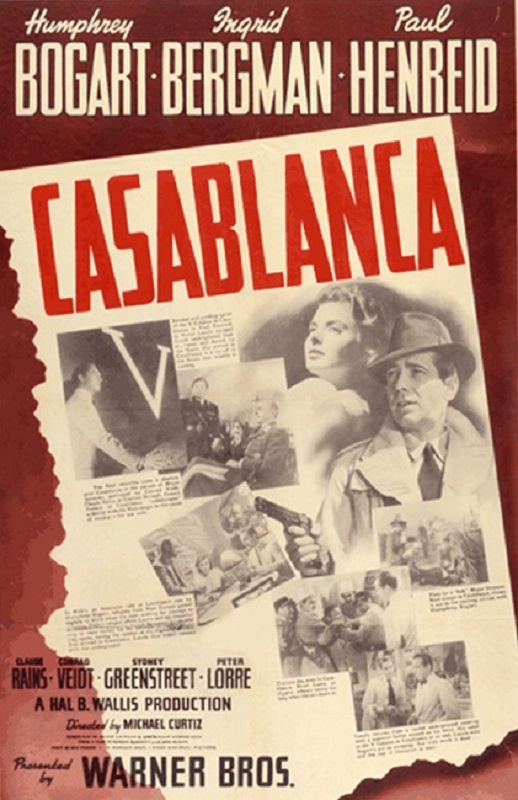
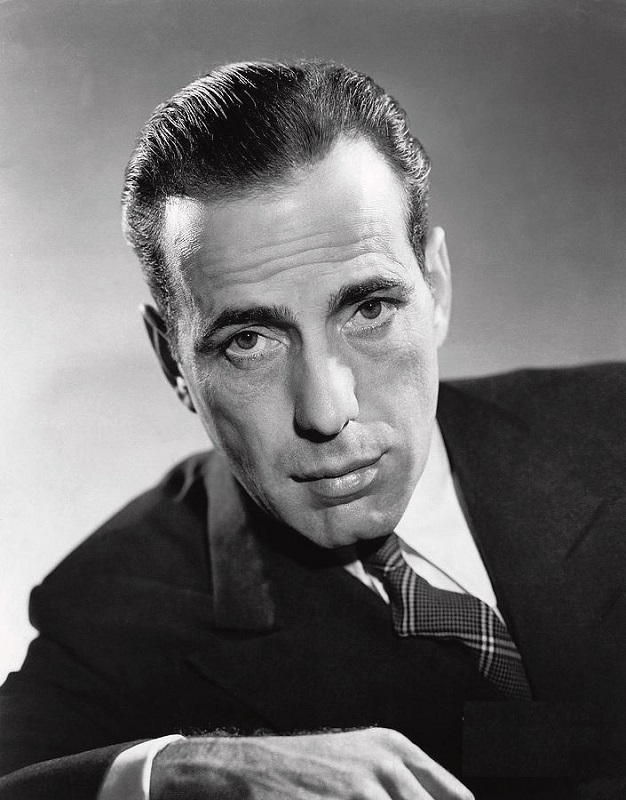

1943 – Humphrey Bogart
Casablanca
Can you imagine anyone except Humphrey Bogart playing Rick Blaine in Casablanca? Of course not. That look, that attitude, that swagger, that delivery was all Bogart. And Bogart was no stranger in front of the camera, but this was the leading role that launched him into super-stardom. True, he’d just starred in the Maltese Falcon two years before, but Casablanca seemed to be on another level.
Rick was the owner of Rick’s Café Américain, a nightclub and casino in Casablanca, the largest city in Morocco. A wide variety of people frequented the place, from wealthy war refugees to criminals, from the French Police to high-ranking Nazi officials. And in Rick’s book, only money mattered, not status. In that way he remained true to his current convictions of complete political and social nutrality. And I think this is where Bogart shined. He totally understood the character and his motivations. He treated everyone the same, no matter what side of the war they were on. That was Rick, at least, until Ilsa showed up again.
Bogart’s on-screen chemistry with Ingrid Bergman was magical. Even though Bergman had later stated in interviews that she and Bogart were more co-workers than friends, when they were together on the screen, there was an intimacy between them that felt like they had to be more than mere aquaintences. Bogart was great as he said, “If that plane leaves the ground and you’re not with him, you’ll regret it. Maybe not today. Maybe not tomorrow, but soon and for the rest of your life.” Such a great line, and so perfectly delivered!
And who can forget that iconic scene in the dark as Rick gets drunk, where he utters that famous line, “Of all the gin joints, in all the towns, in all the world, she walks into mine.” Bogart was so real, so perfect. There was depression, anger, self pity, and a dozen other emotions just pouring out of him, and he nailed the scene. I absolutely think he deserved his Best Actor nomination. But he lost the top honor to Paul Lukas in Watch on the Rhine. I’ve see that film, and looking at it through my modern eyes, with how memorable and beloved as Casablanca is, I think Bogart should have taken home the Oscar. He was robbed, plane and simple.
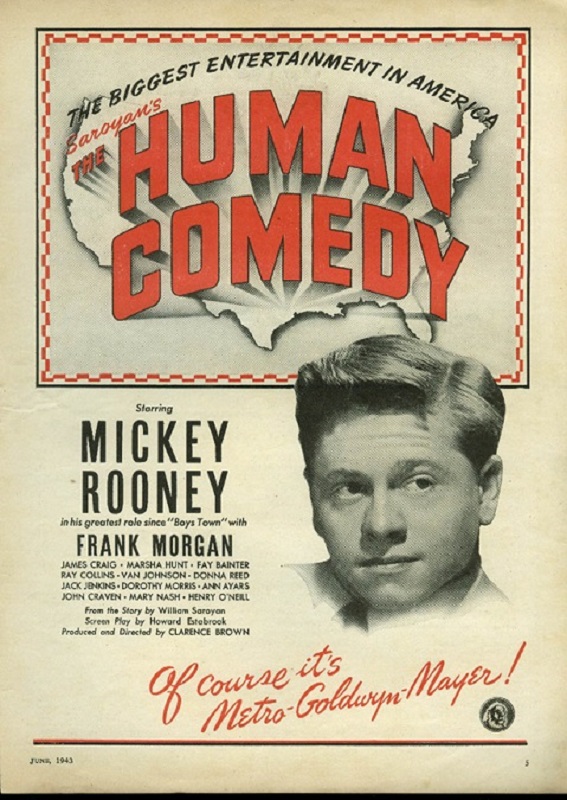
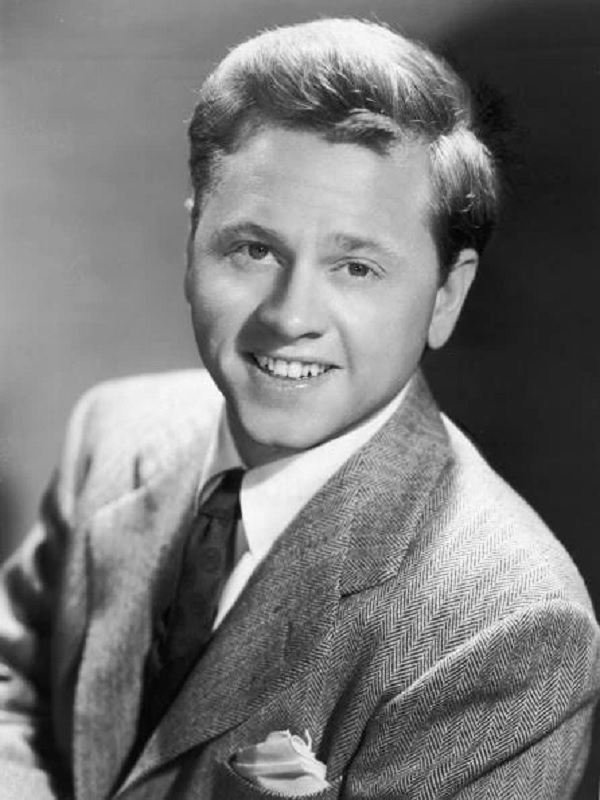

1943 – Mickey Rooney
The Human Comedy
Ok, wow. This was a stupid movie, but I have to ask, is that only through my modern eyes? No, I don’t think so. But here, I’m not judging the movie. I’m critiquing Mickey Rooney’s performance. And as far as that went, he did a fine job. There were actually three members of the cast who I think did a good job with the blatant propaganda dialogue in the script. Frank Morgan, Fay Bainter, and Mickey Rooney. Aside from them and a few others, we got some pretty bad acting.
Rooney played a teenage boy in fictional Ithaca, California named Homer. His father was dead, and his brother had gone off to war. So at his young age, he was the man of the house, going to school during the day and working at night to bring in some money. Rooney certainly looked like any boy you might meet anywhere. He was clean-cut and wholesome, polite, and super-respectful of his elders. He was a golly-gee-whiz kind of a youth with a good head on his shoulders. He was athletic and handsome, hard-working and intelligent, kind-hearted and generous, everything a well-brought-up American boy should be.
But what I didn’t like about the film was that it was nothing more than different characters giving a series of monologues about patriotism, duty, and dealing with the loss of loved ones during war-time. Rooney at least delivered his share of the shoe-horned pontificating with a sense of drama and heartfelt pathos. And he had to shoulder the lion’s share of the deep drama in the narrative, as he learns that his beloved older brother has died in the war. And he takes it with stoicism and bravery, knowing why his brother fought and died. And he was actually really great in that scene. The utter devastation on his face is heart-wrenching.
I actually have only one minor complaint about his performance. In one scene, he has to run in a track race at school. While running, Homer kept glancing over at his opponent, a bad practice for a real runner. Taking the time to check on the other runners is only going to slow you down. Pay attention to what you are doing, not them. But aside from that and the forced wholesomeness of the script, Rooney was good. Some have even called it one of the best performances of his career.



1943 – Katina Paxinou
For Whom the Bell Tolls
Katina Paxinou took home the Oscar for her performance in this film. But outside of this movie, I’ve never even heard her name. She was very good and she deserved her award, but now I have to wonder what else she was in. Well, she was only in fifteen films, and I’ve never heard of any of them. She got her start doing stage work in Greece, and some of her movies were in Italian
She did a fantastic job here, playing Pilar, an unattractive and strong willed woman who wrests the leadership of a band of anti-fascist guerillas from her husband, Pablo, during the Spanish Civil War. She is a powerful woman who is ultimately disappointed with her husband who used to be a strong leader and revolutionary, but who is now a drunkard and a coward. She is quick to anger, quick to smile, and ready to hold a gun when it is necessary. And I love the way Paxinou played it. She cared for her men like a mother cares for her children. Pilar was always ready with a sharp tongue or an open smile, whatever was required. I loved the scene where she agrees to let her men execute her husband for betraying them
And it was a bit of a minor plot point that she was an unattractive woman, and she knew it. In fact she even had a pretty hefty monologue about how she was ugly, but men loved her anyway, and she joked about stealing the American away from Maria. It was the kind of scene that made you fall in love with her. But looking at a glamour photo of the actress, I can see how they had to give her a thorough makeup job to make the attractive woman appear ugly. But this was still the early days of Technicolor, and I think they were still trying to figure out color. Both Pilar and Pablo had a lot of makeup on their faces to try to make them look ethnically Spanish, and they just ended up looking dark brown, or sometimes a weird gray.
And in the last few scenes of the film, Paxinou really pulled out all the stops. She picked up a rifle and proved she was just as tough as any man, and I loved her even more for it. She completely deserved the Oscar she won. She was just that good. It’s too bad she wasn’t in more American films. I was thoroughly impressed. Paxinou really knocked this one out of the park.
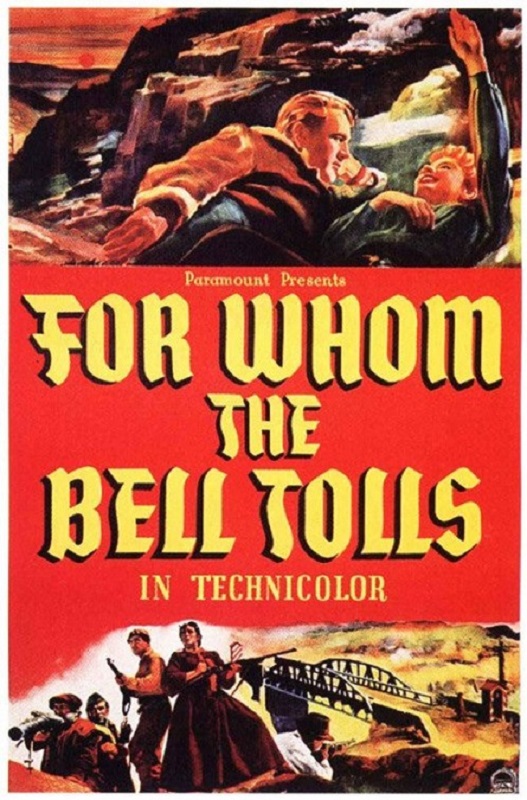
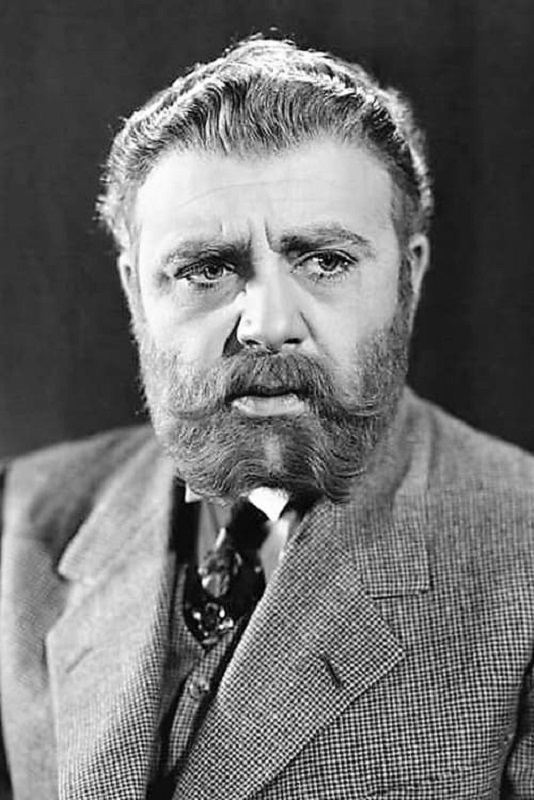

1943 – Akim Tamiroff
For Whom the Bell Tolls
I first learned who Akim Tamiroff was when I watched him in the 1936 film, The General Died at Dawn, for which he earned himself a Best Supporting Actor nomination. I‘ve now seen him in several other Oscar nominated films. He keeps showing up where I least expect him, and he always does a great job. This movie was no exception. And He usually plays a foreign character. Here, he plays Pablo, the leader of an anti-fascist guerilla resistance cell in Spain during the Spanish Civil War. He spends most of the film as a man who was once daring and brave, but has grown into an overly-cautious drunkard that bordered on cowardice. But by the end of the movie, he regains some of his old fire.
Pablo was a complex character. He cared for his people deeply, and yet he seemed to have forgotten what they were resisting, what they were fighting for. One minute he was betraying them, the next he was fighting beside them. One minute he was against violence because it might bring their enemies down upon them, the next he was mowing the enemy armies down with a machine gun. It was often hard to tell what he stood for, what his passions would lead him to do. But in the end, he remained true to the cause. Tamiroff had to play these dualities believably.
He had several scenes that stood out to me, and must have been a challenge for him. There was one in which his woman, Pilar, stood up to the weakness of his will and wrested the leadership of the group from him. The drunken shame on his face was perfect. Another was when he allowed one of his ben to repeatedly punch him in the mouth because he’d mocked the American who had come to help his people. Tamiroff was great in that scene. And yet another scene, where he callously murdered, in cold blood, the men he brought to help in the fighting, so that his own men could have their horses to escape from the fascist army after the mission.
The only thing I didn’t like about the character wasn’t even Tamiroff’s fault. His makeup. This was the early days of Technicolor, and they didn’t seem to have color down yet. At times the skin of his face looked a weird gray. Was that intentional, or just the filmmakers trying to figure out the color of a dirty Spaniard?